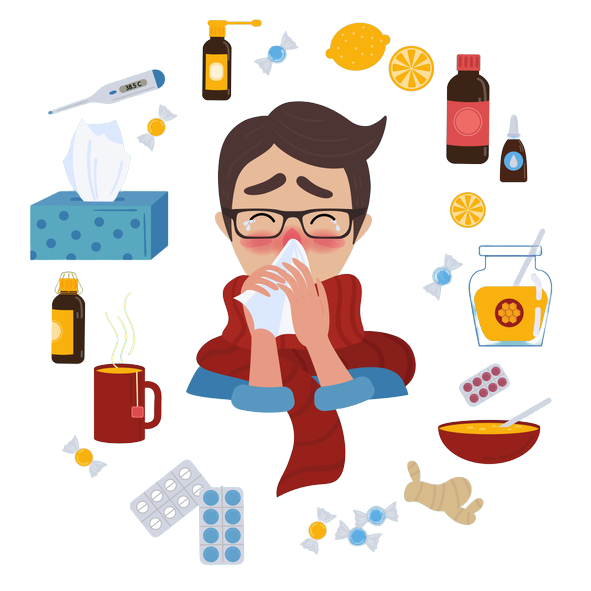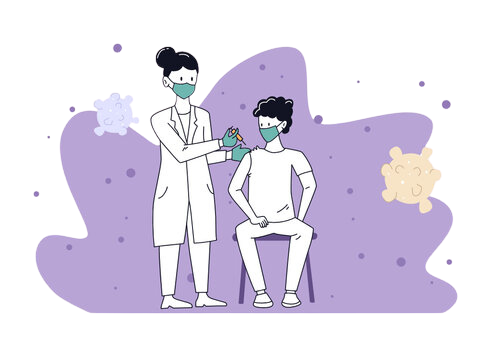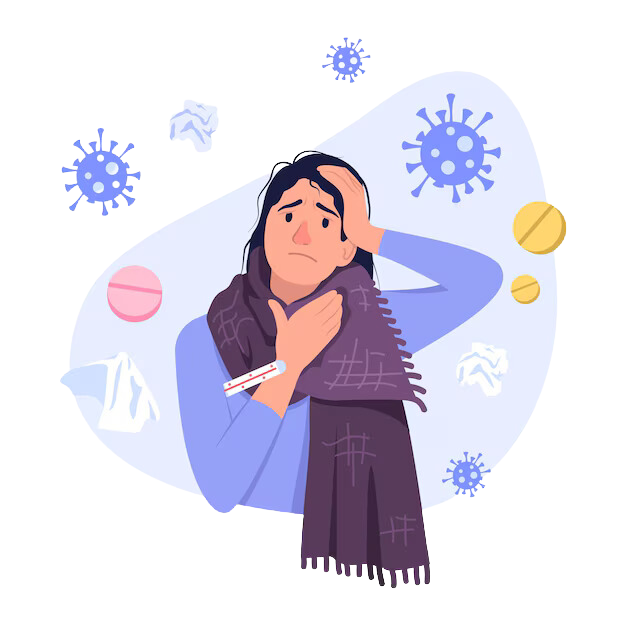Table of Contents
Introduction
Seasonal flu medications play a key role in helping individuals manage flu symptoms and reduce the severity of the illness. To understand more about flu treatments, visit CDC’s Guide to Seasonal Flu. The flu can make you feel weak, fatigued, and uncomfortable, and finding the right medicine to fight off flu symptoms is essential for a speedy recovery. With a wide range of over-the-counter and prescription medications available, it can be overwhelming to choose the best option for your specific needs.
In this blog, we will explore some of the top-rated medicines for seasonal flu, evaluate their effectiveness in managing symptoms, and discuss how they work to reduce the severity and duration of the flu. Additionally, we’ll review possible side effects and provide insights on which flu medications might be most suitable for different individuals, helping you make informed decisions for yourself and your loved ones. By understanding the various options available, you can feel more confident in managing your flu symptoms and enhancing your overall well-being.
1. Seasonal Flu and Its Impact on Health

Seasonal flu is a contagious respiratory illness caused by influenza viruses that can spread easily from person to person, especially during the colder months when people tend to spend more time indoors. Seasonal flu can lead to severe health complications, especially for high-risk groups like the elderly and those with chronic conditions. For more information on the impact of seasonal flu, visit CDC’s Seasonal Flu Overview.
It can cause mild to severe symptoms, including fever, cough, sore throat, muscle aches, and fatigue. While the flu may seem like a common illness, it can lead to serious complications, particularly in vulnerable groups such as children, the elderly, pregnant women, and people with weakened immune systems. In some cases, seasonal flu can even result in hospitalization or death.
Key flu symptoms:
- Fever and chills: Often accompanied by a high temperature and cold sweats.
- Body aches and fatigue: Flu typically causes muscle pain, joint discomfort, and extreme tiredness.
- Cough and sore throat: Persistent cough, along with a sore throat, is a common symptom.
- Nasal congestion: Blocked nose or runny nose, making breathing difficult.
- Headaches: Sharp, frequent headaches are common during flu infection.
Understanding the Seasonal Flu and its potential impact on your health is the first step toward preventing and treating it effectively. Recognizing symptoms early and seeking appropriate treatment can help minimize the severity of the illness and prevent further complications.
By staying informed about the Seasonal Flu and its associated risks, you can take proactive steps to protect yourself and others. Early intervention is crucial when dealing with the Seasonal Flu to ensure a quicker recovery and avoid potential health issues. Learn how seasonal flu affects different populations at Mayo Clinic’s Flu Impact on Health.
2. What Are the Top-Rated Medicines for Seasonal Flu?

Several medications are commonly used to treat seasonal flu, including antivirals and over-the-counter remedies. For a list of top-rated flu medicines, visit WebMD’s Best Flu Medications. These medications can help alleviate symptoms, shorten the duration of the illness, and prevent complications. Some flu treatments are most effective when taken early in the illness, while others help manage symptoms and improve comfort during recovery. Understanding the options available can ensure you receive the right treatment for your needs.
Common flu medications include:
Tamiflu (Oseltamivir): A prescription antiviral medication that can reduce the severity and duration of flu symptoms when taken within the first 48 hours of symptom onset. Tamiflu works by inhibiting the flu virus’s ability to multiply, helping to shorten the flu duration and prevent complications like pneumonia.
Relenza (Zanamivir): Another prescription antiviral medicine, Relenza is available as an inhalation powder. It works similarly to Tamiflu by preventing the virus from spreading in the body and can shorten flu symptoms if taken early in the infection.
FluMist (Live Attenuated Influenza Vaccine): Unlike treatments, FluMist is a nasal spray vaccine designed to prevent the flu virus. It is typically recommended for individuals who need protection against the flu during the flu season, especially those in high-risk groups. FluMist works by stimulating an immune response to the virus, offering protection against future infections. Explore antiviral medications for flu relief at CDC’s Antiviral Drugs for Flu.
Acetaminophen and Ibuprofen: Both of these over-the-counter medicines are commonly used to manage flu symptoms such as fever, headaches, and body aches. Acetaminophen (Tylenol) helps reduce fever and relieve pain, while ibuprofen (Advil or Motrin) provides similar benefits but also has anti-inflammatory properties. These medicines are useful for easing the discomfort associated with flu symptoms.
These medicines are recommended depending on the severity of symptoms, the patient’s overall health condition, and the duration of the illness. While antiviral medications like Tamiflu and Relenza are more suitable for reducing the length and severity of the Seasonal Flu, OTC medicines like acetaminophen and ibuprofen are effective for symptom management.
When dealing with the Seasonal Flu, it’s important to consider both the type of flu and the specific needs of the patient. The right treatment can help ease discomfort and shorten the duration of the Seasonal Flu. Always consult a healthcare provider for the best approach to managing the Seasonal Flu effectively.
3. Antiviral Medications: Do They Really Work?

Antiviral medications can help reduce the severity and duration of flu symptoms if taken early. To learn more about their effectiveness, visit CDC’s Guide to Antiviral Drugs for Flu. These medications work by inhibiting the ability of the Seasonal Flu virus to multiply in the body, which in turn helps reduce the severity and duration of symptoms. When used correctly, antiviral medications can be a powerful tool in managing the Seasonal Flu and preventing serious complications. It’s essential to start antiviral treatment early to get the best results in managing the Seasonal Flu.
Benefits of antiviral medications:
Reduces flu symptoms when taken within 48 hours of onset: The earlier you start antiviral treatment, the more effective it will be. When taken within the first two days of symptoms, antiviral medications can help relieve symptoms more quickly, allowing you to recover faster.
Shortens the duration of flu symptoms by about one to two days: While antiviral medications may not completely eliminate the flu, they can reduce the length of the illness, helping you return to normal activities more quickly.
Reduces the risk of complications like pneumonia, particularly in high-risk individuals: For vulnerable populations such as the elderly, pregnant women, or those with chronic conditions, antiviral medications can reduce the likelihood of severe complications, including pneumonia and hospitalization.
However, antiviral medications may not be effective for everyone. They are most beneficial when taken early, ideally within 48 hours of the onset of symptoms. If taken after 48 hours, some studies suggest that antiviral drugs have limited benefits, and their ability to reduce symptom duration and prevent complications may be diminished.
4. Over-the-Counter Medicines for Flu Symptom Relief

While antiviral medications target the virus itself, over-the-counter (OTC) medicines are designed to provide relief from the various symptoms associated with the Seasonal Flu. These medications don’t cure the Seasonal Flu but help alleviate discomfort, allowing you to rest and recover more comfortably. OTC medications, such as acetaminophen and ibuprofen, can help manage the fever, aches, and pains commonly experienced with the Seasonal Flu.
Common OTC medications:
Pain relievers: Acetaminophen (Tylenol) and ibuprofen (Advil, Motrin) are commonly used to reduce fever, body aches, and pains associated with the flu. They can provide much-needed relief and make it easier for you to rest.
Cough suppressants: Dextromethorphan is often found in OTC products like Robitussin or Delsym. This ingredient helps reduce coughing, which can be particularly bothersome during the flu. It can allow you to sleep better and reduce throat irritation.
Decongestants: Pseudoephedrine (Sudafed) and phenylephrine are commonly used to relieve nasal congestion, a frequent symptom of the flu. These medications can help open up blocked nasal passages and improve airflow, making it easier to breathe.
In addition to these, many OTC flu medications combine several ingredients to target multiple symptoms at once. For example, some flu medications may contain pain relievers, decongestants, and cough suppressants all in one. Explore the benefits of OTC flu medications for symptom management at Healthline’s Best OTC Flu Treatments. However, it’s important to choose the right combination based on your specific symptoms and avoid taking multiple medications with the same active ingredients.
These OTC treatments do not cure the flu but can make symptoms more manageable, helping you rest and recover in a more comfortable way. Always follow the dosage instructions carefully and consult with a healthcare provider if you have any concerns, especially for children or individuals with preexisting conditions.
5. Flu Vaccines: Prevention Is Better Than Cure

One of the most effective ways to protect yourself from seasonal flu is by getting the flu vaccine. Flu vaccines are a highly effective way to prevent seasonal flu and its complications. To learn more about the importance of flu vaccination, visit CDC’s Flu Vaccine Information. The flu vaccine contains inactivated flu viruses that help your immune system build resistance against specific strains of influenza, making it much less likely that you will contract the flu in the first place.
Benefits of the flu vaccine:
Provides immunity against the most common flu strains: The flu vaccine is designed to protect against the most prevalent strains of the flu virus each year, as identified by health experts. This significantly reduces the chances of infection, even when flu season is at its peak.
Reduces the likelihood of getting infected with the flu: While no vaccine offers 100% protection, the flu vaccine can lower your risk of contracting the flu by a substantial amount. This is especially important for individuals who are at higher risk of developing complications.
Protects vulnerable populations from serious flu-related complications: Certain groups, such as young children, the elderly, pregnant women, and people with weakened immune systems, are more susceptible to serious complications like pneumonia, hospitalization, and even death. The flu vaccine provides them with a critical layer of protection.
The flu vaccine is recommended for everyone, but it is especially important for individuals in high-risk categories, such as:
- Young children
- Elderly individuals
- Pregnant women
- Those with chronic health conditions (such as asthma, heart disease, or diabetes)
Even if you are otherwise healthy, getting the Seasonal Flu vaccine can reduce the overall spread of the virus and contribute to herd immunity, protecting those who are unable to get vaccinated due to medical reasons. By getting the Seasonal Flu vaccine, you help reduce the burden of the Seasonal Flu on the healthcare system and protect vulnerable individuals in your community.
Keep in mind that it’s best to get the Seasonal Flu vaccine annually, as the flu virus evolves each year, and the vaccine is updated to target the most current strains.
6. Are Natural Remedies Effective Against Flu?

In addition to pharmaceutical treatments, many people turn to natural remedies to treat the flu. Natural remedies can help alleviate mild flu symptoms, but they may not be as effective as antiviral medications. To explore the potential of natural remedies, visit WebMD’s Guide to Natural Remedies for Flu. While these alternatives are not a substitute for antiviral medications, some may provide symptomatic relief and complement traditional treatments.
Popular natural remedies include:
Honey and Lemon Tea: Honey has antimicrobial properties and can soothe a sore throat, while lemon helps to reduce congestion and provides a boost of vitamin C. This combination is often used to ease coughs, throat irritation, and to hydrate the body.
Ginger and Turmeric: Both ginger and turmeric are well-known for their anti-inflammatory properties. Ginger can help alleviate nausea, a common symptom of the flu, and may also provide some relief from body aches. Turmeric, due to its active compound curcumin, has been used traditionally to fight infections and reduce inflammation, which can aid in easing flu symptoms.
Echinacea: Echinacea is believed to support the immune system, potentially shortening the duration of cold and flu symptoms. Some studies suggest that it may help reduce the severity of symptoms or help prevent flu if taken at the onset, though the evidence is still mixed.
These remedies can be used alongside conventional treatments to enhance comfort and recovery, but should not be relied upon as the primary treatment for seasonal flu. They are meant to complement, not replace, antiviral medications or other doctor-recommended flu treatments. Additionally, it’s important to consult with a healthcare provider before using any natural remedies, especially if you’re already taking other medications or have underlying health conditions.
While natural remedies may offer some relief, the best course of action for treating the flu remains early intervention with antiviral medications, staying hydrated, and getting plenty of rest. Learn about the effectiveness of herbal and natural flu treatments at Mayo Clinic’s Overview of Natural Remedies.
7. How to Use Flu Medications Safely

Using Seasonal Flu medications correctly is crucial to ensuring their effectiveness and preventing complications. Whether you’re using prescription antiviral drugs or over-the-counter (OTC) medications for Seasonal Flu, following safe medication practices is essential to your recovery. It’s important to follow dosage instructions and avoid interactions when taking flu medications. For tips on using flu medicines safely, visit CDC’s Flu Medicine Safety Guidelines. Always follow your healthcare provider’s recommendations or the instructions on OTC medication labels to avoid misuse or potential side effects related to the Seasonal Flu.
Safe medication practices:
Start antiviral medications as soon as possible after symptoms appear: Antiviral drugs like Tamiflu and Relenza are most effective when taken within the first 48 hours of flu symptoms. Starting treatment early can help reduce the severity of symptoms and the duration of the illness.
Never exceed the recommended dosage of pain relievers or decongestants: Overuse of medications such as acetaminophen (Tylenol) or ibuprofen (Advil) can lead to serious side effects like liver damage or kidney issues. Always adhere to the recommended dosage and avoid combining multiple medications that contain the same active ingredients.
Consult with a healthcare provider before taking any flu medication, especially for children, pregnant women, or those with underlying conditions: Certain flu medications may not be safe for all individuals. Pregnant women, young children, and individuals with conditions like asthma, diabetes, or heart disease should consult with a doctor before taking any flu medications to ensure they are using the safest options available.
Be cautious with OTC combinations: Many OTC flu medications combine multiple ingredients such as pain relievers, decongestants, and cough suppressants. While convenient, these combinations can lead to unintentional overdosing if you’re also taking other medications with similar ingredients. Always read labels carefully.
Stay hydrated and rest: Medications work best when accompanied by proper self-care. Hydrate well, rest, and maintain a balanced diet to support your immune system and help speed up recovery. Explore how to safely use flu treatments and avoid side effects at WebMD’s Flu Medicine Safety Advice.
By following these guidelines, you can ensure that flu medications work effectively and safely. If you’re ever unsure about how to use a medication, consult your healthcare provider or pharmacist for personalized advice.
8. Possible Side Effects of Flu Medications

While most Seasonal flu medications are safe and effective, they can have side effects, particularly when used improperly or in high doses. It’s important to be aware of these potential side effects to make informed decisions and to consult a healthcare provider if you experience any adverse reactions.
Common side effects of flu medications:
Tamiflu (Oseltamivir): While effective in reducing flu symptoms, Tamiflu may cause side effects such as nausea, vomiting, and headaches. Some people may also experience dizziness, fatigue, or abdominal pain. If these side effects persist or worsen, consult your doctor.
Relenza (Zanamivir): This inhaled antiviral medication may lead to nasal irritation, coughing, dizziness, or diarrhea. It can also cause bronchospasm, especially in individuals with asthma or other respiratory conditions, so it’s important to use it cautiously in these populations.
Acetaminophen (Tylenol): Acetaminophen is commonly used for pain and fever relief, but taking it in excess can lead to serious liver damage. It’s essential to stick to the recommended dose and avoid combining it with other medications containing acetaminophen.
Ibuprofen (Advil, Motrin): While effective at reducing fever and body aches, ibuprofen can irritate the stomach lining and lead to gastrointestinal issues like ulcers or bleeding, especially if taken for long periods or in high doses. Long-term use can also potentially damage the kidneys.
Decongestants (e.g., pseudoephedrine, phenylephrine): These can cause increased blood pressure, insomnia, dizziness, or restlessness, particularly in individuals with hypertension or heart conditions.
What to do if you experience side effects:
- If you experience any severe or unusual side effects, such as difficulty breathing, chest pain, or swelling, stop taking the medication immediately and seek emergency medical help.
- For mild side effects, you can contact your healthcare provider to discuss alternatives or adjust dosages to minimize discomfort.
- Always follow the dosage instructions carefully and keep track of any side effects to share with your healthcare provider.
By staying informed about the potential side effects of flu medications, you can make the best choices for your health and well-being. Always read labels, and don’t hesitate to seek medical advice if something doesn’t feel right. Understand common flu medicine side effects and how to manage them at Healthline’s Flu Medication Risks.
9. Flu Treatment Tips for Faster Recovery

While medications are key in treating the flu, certain lifestyle practices can help speed up recovery and prevent the virus from spreading to others. To recover from the flu quickly, it’s important to rest, stay hydrated, and take prescribed medications. For more tips on flu recovery, visit WebMD’s Flu Recovery Tips. Following these tips can boost your immune system, alleviate symptoms, and help you get back on your feet faster.
Recovery tips:
Rest: Adequate rest is crucial for your immune system to fight off the flu virus. Prioritize sleep and avoid overexerting yourself while you’re sick.
Stay hydrated: Flu symptoms, such as fever and sweating, can lead to dehydration. Drinking plenty of fluids such as water, herbal teas, and electrolyte drinks helps maintain hydration and supports your body’s healing process.
Eat nutritious foods: A healthy, balanced diet can enhance your immune function and help you recover faster. Include fruits, vegetables, lean proteins, and whole grains in your meals to provide the necessary nutrients your body needs to fight off the infection.
Avoid spreading the flu: To prevent infecting others, stay home from work or school until your symptoms have improved. Avoid close contact with others, and practice good hygiene such as frequent handwashing and using tissues when coughing or sneezing.
Additional tips:
Use a humidifier: Dry air can worsen congestion and irritation. Using a humidifier in your room can help keep your airways moist and make breathing easier.
Gargle with salt water: If you have a sore throat, gargling with warm salt water can provide relief and help reduce inflammation.
By combining proper flu medications with these supportive practices, you can speed up your recovery while also minimizing the risk of transmitting the flu to others. Explore strategies to speed up flu recovery at Healthline’s Flu Treatment and Recovery Tips.
Conclusion
Do Top-Rated Flu Medicines Work?
Top-rated medicines, including antiviral drugs and over-the-counter (OTC) treatments, are highly effective in managing and treating seasonal flu. These medications can help alleviate flu symptoms, shorten the duration of the illness, and reduce the risk of complications, particularly when used early in the course of infection.
However, the effectiveness of these treatments depends on several factors, including timely administration, the severity of the flu, and the individual’s overall health condition. Antiviral medications like Tamiflu and Relenza are most effective when taken within the first 48 hours of symptom onset, while OTC medicines provide symptomatic relief but do not cure the virus itself.
For the best results, it is important to consult a healthcare provider who can recommend the appropriate medication and treatment plan based on your specific situation. Combining flu medications with proper rest, hydration, and nutrition will enhance your recovery and help prevent the spread of the virus.

By understanding your options and acting quickly, you can navigate the flu season more effectively and ensure a quicker, smoother recovery. Choosing the right flu medications and strengthening your immunity with expert guidance can make a significant difference. Stay informed about flu prevention strategies and trusted remedies to protect yourself and your loved ones.
Explore expert health tips and top-rated wellness products at Health Medicine Mall, your trusted destination for reliable medical advice and premium healthcare solutions.

